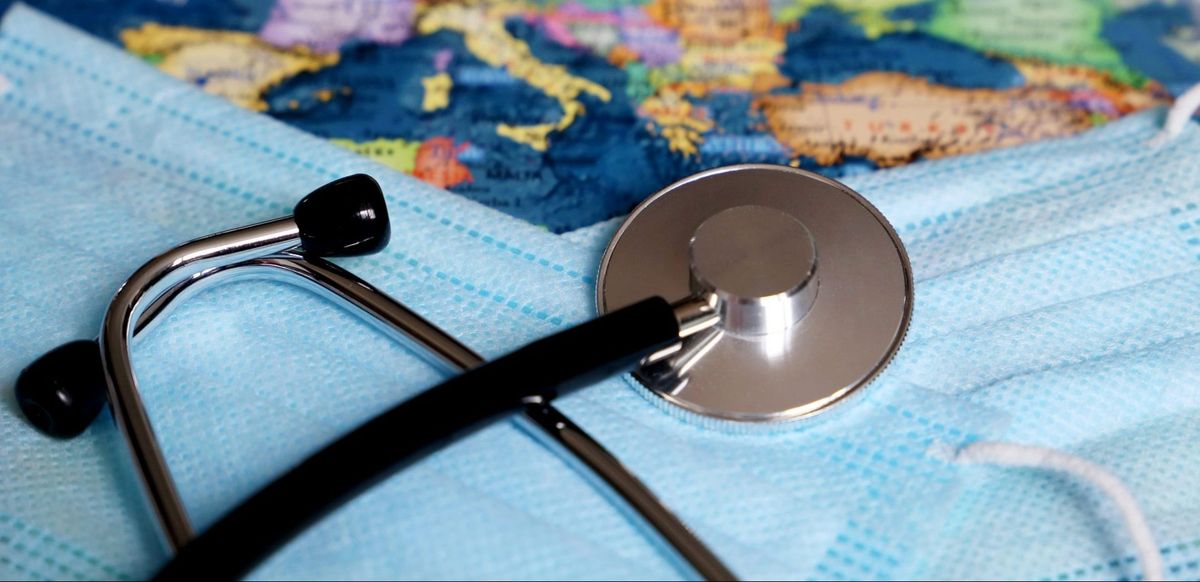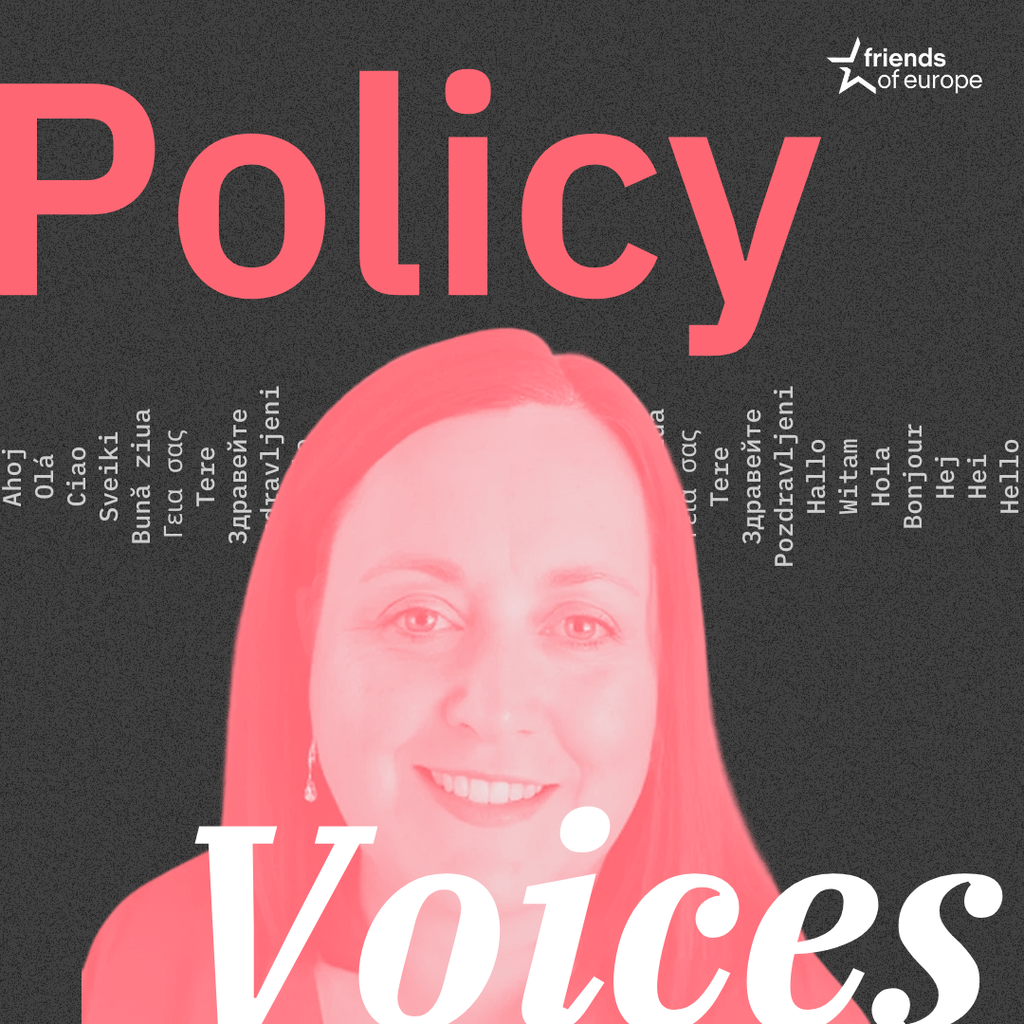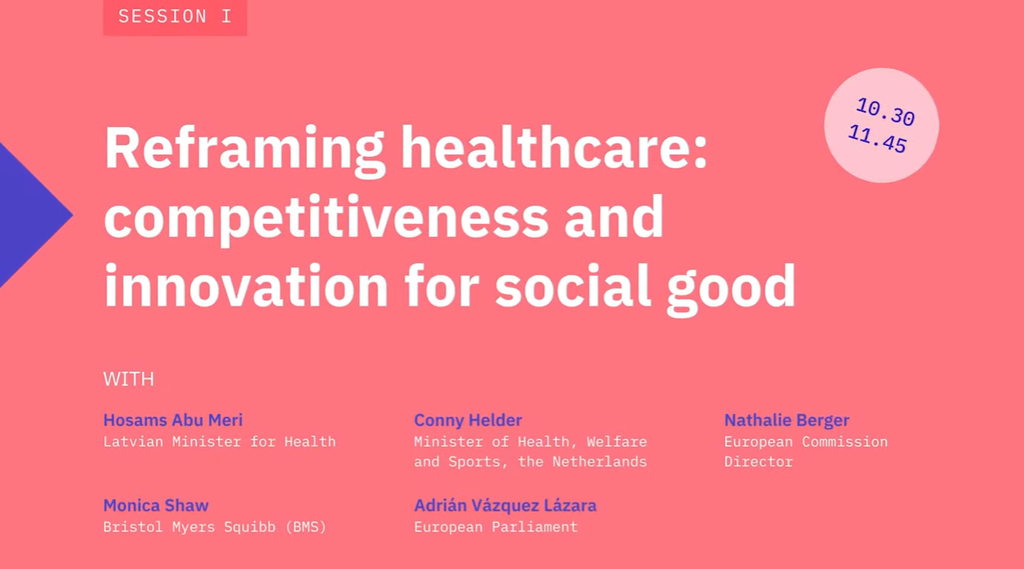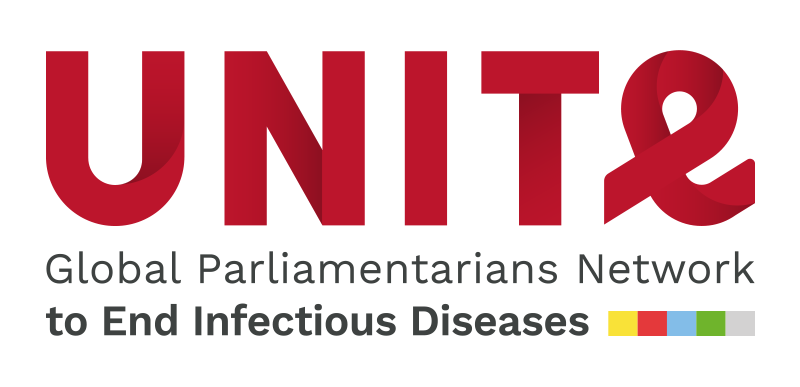
Summary
COVID-19 has been a wakeup call on the need to fix healthcare systems but many of the problems were well-known before the virus struck. Controlling the pandemic’s latest waves is the immediate priority. However, it is time to look ahead, learning from the experience of the past year to build added resilience and smart solutions into our health systems.
The pandemic has pushed health to the top of every agenda. There is political will and public support for reforms that strengthen systems at local, national and European level. Unprecedented levels of cooperation and coordination between governments and international bodies, and among policymakers, industry, academia and healthcare professionals must be sustained.
The European Union health budget has expanded to €5.1 billion. Mandates for EU health agencies have been reinforced and new legislation offers paths to progress on areas like health data. The new EU Health Union has to assist member states to support smarter, more resilient healthcare systems.
This working group focused on how the collaboration forged in crisis can become a new normal to deliver integrated care models; how to prioritise reforms that will ensure the right care is delivered in the right place at the right time; and how the surge in data use and digital solutions during the coronavirus emergency should be leveraged post-pandemic to underpin community care outcomes with a renewed focus on patient wellbeing.
To download the outcomes of this working group meeting please click under the date of the event on the top right part of the page.
About
The European Commission president’s strong messages on health in September’s State of the Union address kicked off a busy autumn and winter, marked by both the prolongation of the COVID-19 pandemic and renewed political interest and investment in health throughout the European Union. Millions of patients have seen their care postponed or reduced as healthcare systems struggle to cope. Chronic patients are disproportionately affected by this crisis as advocates from the cardiovascular, cancer and diabetes communities report increased risks of severe illness and big delays in accessing care. The rapid transition to digital consultations and remote monitoring paves the way for the shift towards more primary or home-based care.
After a shaky start, a European response to COVID-19 has emerged. Member states, traditionally wary of sharing power in healthcare, have joined forces under the coordination of the Commission. With an overall increase in budget to €5.1bn, the need for more ‘Europe’ in health is agreed and the EU political agenda is now shifting towards its increased role in health policy.
In November 2020, the Commission published a flurry of proposals on their vision for a European Health Union. Among the proposals, the mandate and resources of the European Centre for Disease Prevention and Control and the European Medicines Agency will be increased and a new body will be set up for strengthened health research and development in order to improve the Union’s crisis preparedness. A new pharmaceutical strategy has also been published with proposals to review key legislations and examine the adoption of trade agreements to secure patient access. This strategy is likely to be reinforced with calls to launch a high-level dialogue for the EU’s industrial strategic autonomy. Finally, a data governance act has been proposed to govern who has access to the data, what purposes it can be used for and how. It promises to have a strong impact on health data.
The Portuguese Presidency plans to present a ‘Charter of Digital Rights’, which will cover artificial intelligence. It will also prioritise investments in digitising public services in health and social welfare.
Within this context, Friends of Europe, supported by Baxter, has launched work on rethinking EU healthcare delivery models in a post-pandemic world. The first roundtable, ‘Rethinking EU healthcare delivery models for chronic patients’, took place in January, during which participants discussed the ideas for change and lessons to be learned from the COVID-19 emergency for chronic diseases. It explored what this means in practical terms for clinicians and patients, as well as lessons for the way care pathways should be restructured.
Related content
- Chronic care management in the context of healthcare system resilience
- How do health systems meet the challenge of managing chronic diseases during COVID-19 and beyond?
- Meeting the healthcare needs of chronic patients – lessons to learn from the COVID-19 pandemic” – a patient perspective
- Elderly patients are at substantial risk to COVID-19. How has their primary care been impacted by the pandemic, and how have health systems adapted accordingly?
Our events include photos, audio and video recording that we might use for promotional purposes. By registering, you give your permission to use your image. Should you have any questions, please contact us.
Schedule
With an overall increase in budget to €5,1 billion, reinforced mandates for its health agencies and new legislations on health data and products, the EU’s political agenda has shifted towards its increased role in health policy. EU Health Union initiatives should be leveraged in member states to support more resilient healthcare systems.
- The Covid-19 crisis created a new era of collaboration. How do we make this the norm to deliver on integrated care models?
- What reforms are needed to ensure the right care is delivered in the right place and at the right time?
- How can digital infrastructure underpin delivery of care in community and home settings? How can the uptake of existing digital tools be enabled?
Participants will be divided into breakout rooms and each group will be asked to make recommendations for action at European, national and local levels. This expert working group will bring together a select group of policy- and decision-makers to hone in on what is necessary to build more resilient healthcare systems in Europe.
Speakers
Pierre Delsaux
European Commission Director-General of the Health Emergency Preparedness and Response Authority (HERA)
Ioana Mihăilă
State Secretary for the Romanian Ministry of Health
Speakers

European Commission Director-General of the Health Emergency Preparedness and Response Authority (HERA)
Pierre Delsaux has gained significant experience in operational management, policy implementation and formulation throughout a long and remarkable career at the European Commission. A lawyer by training, he has held numerous senior positions within the Commission, mainly within the Directorate-General Internal Market, Industry, Entrepreneurship and SMEs (DG GROW) and the former Directorate-General Internal Market and Services (DG MARKT). Prior to working at the Commission, Delsaux was a legal secretary at the European Court of Justice.

State Secretary for the Romanian Ministry of Health
Ioana Mihăilă is an endocrinologist, with 10 years of experience in the field.
Driven by the legislative instability, the lack of transparency and bureaucracy in the health sector, she entered politics and now serves as a State Secretary in the Ministry of Health. Her main interest is making the health sector more resilient.
Prior to this, she set up a medical practice which later developed into a small private clinic, where she gained skills in the economics, entrepreneurship and non-reimbursable financing areas.
Partners
Activities
Europe's moment: advancing clinical research and health innovation
Next event In person & online

- Area of Expertise
- Sustainable Livelihoods
Re-imagining Europe's health systems
Past event In person & livestreamed

- Area of Expertise
- Sustainable Livelihoods
Health check for a competitive medical technology sector in Europe
Past event In person

- Area of Expertise
- Sustainable Livelihoods
Healthy ageing for Europe's future: the value of adult immunisation
Past event In person & livestreamed

- Area of Expertise
- Sustainable Livelihoods
Policy Voices | Re-imagining Europe’s health systems
- Category
- Podcast
- Area of Expertise
- Sustainable Livelihoods
Financing the green and just transition: towards further partnerships…
- Category
- #CriticalThinking
- Author
- By Sebastián Nieto-Parra
Reclaiming medicines and health innovation for our health
- Category
- #CriticalThinking
- Author
- By Els Torreele
Hidden biases in public health research: why we are failing our most…
- Category
- #CriticalThinking
- Author
- By Marthe De Boevre

- Area of Expertise
- Sustainable Livelihoods

- Area of Expertise
- Sustainable Livelihoods

- Area of Expertise
- Sustainable Livelihoods

- Area of Expertise
- Sustainable Livelihoods
Continue
the debate on
- Debating Europe


